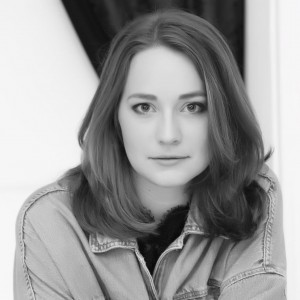Carolin Ida Heilig, Ph.D. Candidate
c.heilig@ucl.ac.uk
University College London

City: London, England
Country: United Kingdom
About Me:
Carolin Heilig holds a BA degree in Political Science and Slavic Studies from the University of Tübingen, Germany. In 2018, she graduated from St Antony’s College, Oxford, with a MSc degree in Russian and East European Studies. Her dissertation focused on current Polish Women’s Rights activism and protest movements. Currently, she is a PhD student at the School of Slavonic and East European Studies (SSEES) at University College London. As an Early Stage Researcher in the FATIGUE: Delayed Transformational Fatigue in Central and Eastern Europe programme, she researches the intersection of civil society with political parties in Central and Eastern Europe, with a special focus on Poland. In the course of her research she has spent time at the Jagiellonian University in Krakow, Poland (2018/2020) and Collegium Civitas in Warsaw, Poland (2015/2016).
Research Interests
Political Participation
European Politics
NGOs
Post-Communist Politics
Gender and Politics
Civil Society
Reproductive Justice
Populism
Illiberal Democracy
Countries of Interest
Poland
Germany
Hungary
Slovakia
United Kingdom
My Research:
The main objective of my research is to investigate the role of civil society actors and political parties in the processes leading up to the illiberal Polish “U-turn” in 2015. The project wants to examine the linkages between civic and political actors, using women’s mobilisation as a specific field of civil society that stretches across the whole ideological spectrum. Focusing on women’s mobilisation allows not only to investigate an ideologically diverse sphere of civil society, but also contributes to the understanding of an aspect of populism that still deserves greater attention in research: women. While the importance of women and traditional gender roles in Polish national identity is acknowledged in the literature, comparatively little has been researched regarding their active agency when it comes to the phenomena of populism and democratic regression.This project further wants to contribute to the academic debate on intersection of political parties and civil society actors for sustaining or endangering liberal democracy. Employing Social Network Analysis (SNA), this project wants to identify who acts as gatekeeper or mediator within and among ideologically different subgroups, allowing for comparison between these. As attributes of individual actors can be accounted for in SNA, this can also help to evaluate the power balance between political and civil society actors.This project will use SNA as an entry point to research the linkages and boundaries between and among civil and political actors in Poland. Due to my placement in Kraków and the constrains of social network data collection, this project will constitute a regional case study of the region surrounding the city. To achieve a deeper understanding of the linkages between the identified actors this project will further rely on qualitative in-depth interviews and potentially further ethnographic methods, such as participant observation.
Media Appearances:
TV Appearances:
In a piece covering British Airways' move to adapt gender-neutral language when communicating with passengers, I spoke about the role of language for achieving gender equality.
As a guest of the Alias Video Podcast I was invited to comment on the rule of law dispute between Poland and the European Union. We also discussed possible responses of other EU member states and EU institutions to the ongoing conflict and used the opportunity to assess the role of the outgoing German government under Angela Merkel.
For "The Stream", I commented on the 2020 protests in Poland against the Constitutional Tribunal's ruling to restrict abortion rights in Poland, arguing that the mobilization of young Poles all over Poland will stay with us as well as a growing recognition of the centrality of gender issues in liberal democracies.
Newspaper Quotes:
For the article "La Pologne dans la rue" [Poland on the streets], I shared some insights on the historical developments of abortion laws in Poland in relation to the protests against the Constitutional Court's ruling to restrict abortion (22.10.2020).
I spoke about the current abortion laws in Poland in a wider European perspective with NBC News.
I was interviewed by Amanda Taub for the Interpreter Column, sharing my assessments on the developments of current protests in Poland and the role of young women protesting abortion restrictions.
Blog Posts:
Together with my colleague Anna Stanisz-Lubowiecka we offer our take on the challenges and the beauty of "Researching Poland from Abroad: Challenges of Doing a PhD in Area Studies: Insights from the Polish Studies Group Northern Workshop in Manchester"
Discussing protest in times of lockdown and the international dimension of women's rights activism using the example of mobilisation agains an abortion ban in Poland
In cooperation with my colleague Paulina Lenik, this blog post took a closer look at the 2015 and 2020 presidential electoral campaign, focusing on the president's role in the illiberal developments in Poland.
An opinion piece on where liberal democracy in Poland is heading
A blog entry reporting on the AEGEE election observation mission to the Polish parliamentary elections in 2019.
My account of Poland's 2016 Black Protest in Warsaw